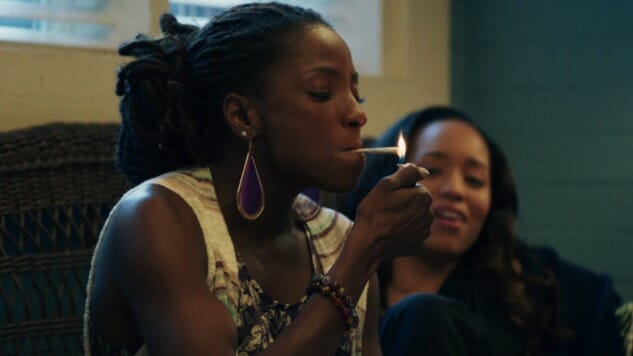I Love Myself When I am Laughing: Queen Sugar and a Carefree Black Womanhood

Everybody has that one auntie, right? Granted, we never sparked up together, but when I was 15 and my two friends from Boston were visiting me in Cleveland, my Aunt Grace pierced Karen’s nose, old school style (lots of ice and blood), while we listened to a Reggae mix she’d made for me. When I was 17 and on punishment for a boyfriend-related fiasco, she told my Uncle (her brother, my guardian) that she was taking me out for my birthday, but she’d actually gone and picked up my boyfriend for me, so we could spend the entire day together. (If you’ve ever been 17 with a significant other who you were totally going to marry in like four years, you can imagine how much this meant to me.) When I was 18 and I got my first apartment, and those same two friends came back to visit, she bought us more liquor than should have been legal (and yeah, it was illegal, Aunt Grace), and then taught me how to sober up my very drunk friend the next day. If my mother, her twin, had been living, she probably wouldn’t have gotten away with these things—or maybe she would have and they would’ve just been our little secrets.
-

-

-

-

-

-

-

-

-

-

-

-

-

-

-

-

-

-

-

-

-

-

-

-

-

-

-

-

-

-

-

-

-

-

-

-

-

-

-

-








































